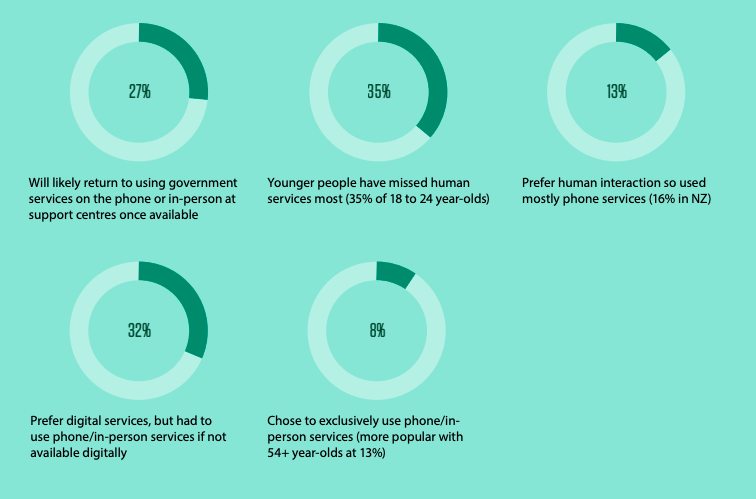Digital government services need to be more accessible for people with disabilities, according to new public sector research.

The research conducted by Indian-based IT company Infosys in early 2021 surveyed 2,500 people across Australia and New Zealand, including 325 people with a disability.
It found 80 per cent of all respondents think government digital services, including websites, apps and platforms, are on par with or better than the private sector.
About 37 per cent reported time saving benefits, feeling confident about using the services and finding them easy to use.
However, 86 per cent think services should be more inclusive to better service people with disabilities and 43 per cent said the government should engage experts in behavioural science or psychology to design more inclusive services.
Fifty per cent said it was important for the digital experience to feel “human” and show “empathy” and 46 per cent of Australian and 48 per cent of NZ respondents said government websites could be improved by looking and feeling like private sector websites.
Almost a third (27 per cent) also indicated they had mostly used digital services in the last year but preferred human interaction, and were likely to return to phone or face-to-face services given the opportunity.
Converting digital hesitaters
Senior Vice President and Regional Head Australia and New Zealand Andrew Groth says the results show that improving the experiences of diverse user groups, will be critical to converting people who currently prefer non-digital channels.
“This includes finding new ways to connect citizens with Government services, enriching their lives through data and reimagining the human experience of both digital and physical touch points,” he said.

Better experiences for people with disability
People with disability were in favour of 44 per cent want medical history and healthcare information to be made available to healthcare professionals to improve care.
However this demographic was more concerned about online security and privacy than the general population and they also want more choice about the sort of information shared across government agencies.
Darrin Bond, Assistant director general at the department of children, youth justice and multicultural affairs said the past year has shown that digital inclusivity was more important than ever.
“Digital government services and apps are central to how we deliver services to citizens,” he said.
“This past year has shown us that digital inclusivity is even more important as people with disability and lower digital confidence are highly impacted by the pandemic and its associated economic impact.”
Support for digital ID
More than half of all those surveyed were in favour of a central sign-in across government services, saying there are currently too many platforms, which Mr Groth says reflects a “strong appetite” for a streamlined digital ID.
“There’s a strong appetite for a digital identity that could streamline and simplify how we all engage across the digital economy,” he said.
“However implementing a highly trusted Digital ID that will work seamlessly across private and public sector is an important part of our journey to be a leading digital economy,” said Mr Groth.
The survey also found 70 per cent believe digital services should be available in more languages, and a fifth of all respondents wanted more opportunities to provide feedback and recommendations about digital services





Leave a Reply